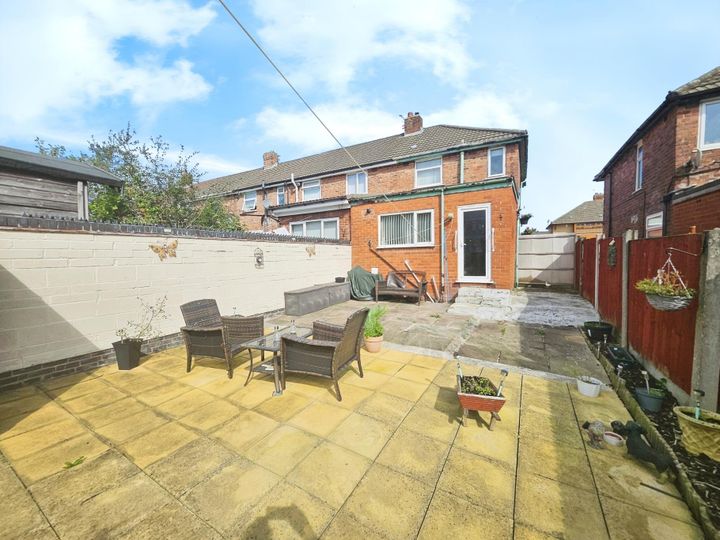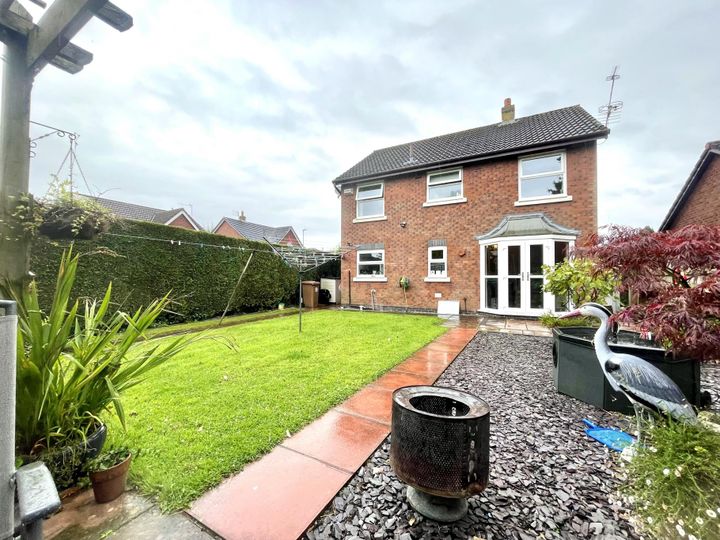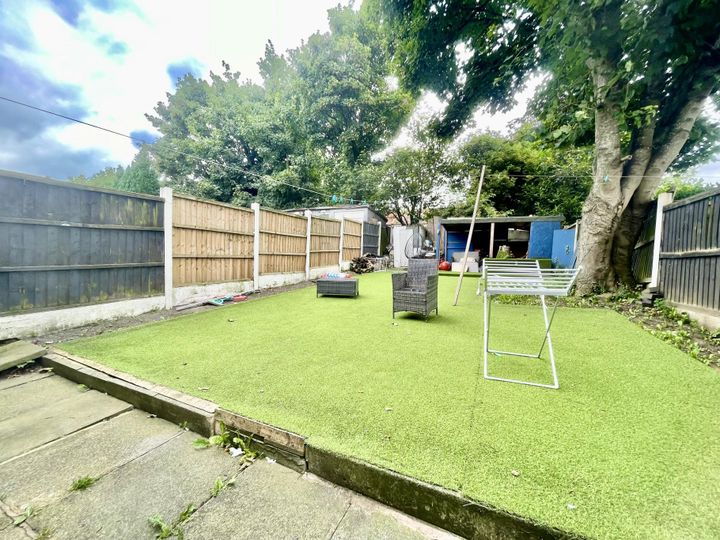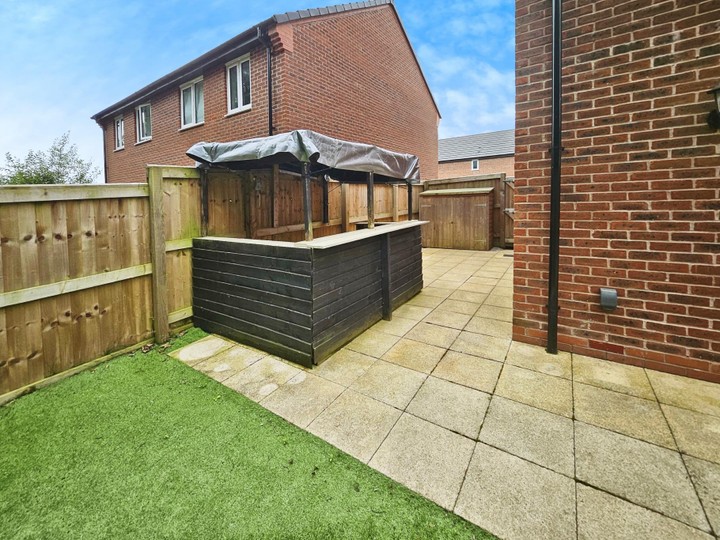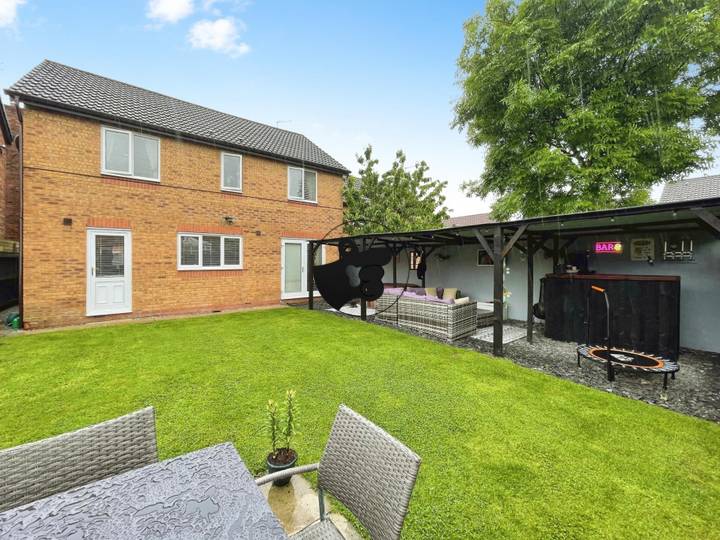As of 2023, the average home prices in Prescot, a town in Merseyside, are generally affordable compared to larger cities like Liverpool. Typically, the average cost of a semi-detached house hovers around £190,000, while terraced homes can be found for around £150,000. Detached properties are more expensive, with prices averaging about £280,000. The housing market has seen a mix of both older Victorian homes and newer developments, which can influence pricing. For example, a recent listing for a three-bedroom terraced house in the area was priced at approximately £145,000, while a more spacious four-bedroom detached home was listed for around £300,000. Overall, the housing market in Prescot offers a range of options for different budgets, reflecting its appeal to families and first-time buyers.
Prescot
Location
Price Range
Any price
Price Range
Minimum
No min
Maximum
No max
Property type
Show all
Property type
Show all
House
Apartment
Building
Other
Bedrooms
Any beds
Bedrooms
Minimum
No min
Maximum
No max
Surface Range
Any surface
Surface Range
Minimum
No min
Maximum
No max
Sale type
For sale
Sale type
Show all
To rent
For sale
Location
Apartments and houses for sale in Prescot
5 results
Recent
Prescot insights
| Aspect | Summary |
|---|---|
| Population | Approximately 40,000 |
| Average Property Price | £320,000 |
| Rental Yield | 5.2% |
| Average Rent | £1,500/month |
| Occupancy Rate | 94% |
| Capital Growth Rate | 3.1% annually |
| Property Tax | 1% of property value |
| Transaction Costs | Approximately 4% of purchase price |
| Expected ROI | 7.2% including capital growth |
| Economic Growth Impact | Stable, with ongoing local development |
Prescot FAQ
What are the average home prices in Prescot?
How have real estate prices in Prescot changed over the past year?
Over the past year, real estate prices in Prescot have experienced notable fluctuations, primarily influenced by market demand and economic conditions. According to local property listings and sales data, average house prices increased by approximately 5-7%, with certain areas witnessing more significant changes. For instance, a three-bedroom semi-detached property that was previously listed at around £180,000 is now averaging closer to £190,000. Additionally, demand for rental properties has surged, leading to a rise in rental prices by about 4% to 6% in some neighborhoods. New developments, including housing estates near Ashworth Park, have added to the inventory, attracting both investors and first-time buyers. Market sentiment remains mixed, with some potential buyers facing challenges due to rising interest rates, which has also impacted the overall purchasing power in the area.
What factors influence real estate prices in Prescot?
Several factors influence real estate prices in Prescot, reflecting its unique geographical and economic landscape. Location plays a crucial role; properties close to the town center or major transport links, such as the M62 and rail connections to Liverpool and Manchester, often command higher prices due to demand from commuters. Additionally, the availability of local amenities, including schools, parks, and shopping facilities, significantly impacts property values; areas near well-rated schools or vibrant retail spaces typically attract families and investors alike. Local economic conditions also contribute, with fluctuations in employment rates and average income levels affecting purchasing power. Lastly, the socio-economic profile of the residents, influenced by the age demographic and income diversity, can shift market trends, as seen in neighborhoods undergoing regeneration or gentrification, which can lead to increased property values over time.
Are home prices in Prescot higher than in nearby areas?
Home prices in Prescot tend to be competitive compared to nearby areas, such as St Helens and Whiston. As of late 2023, the average home price in Prescot is approximately £200,000, which is slightly higher than St Helens, where the average sits around £185,000. However, it is typically lower than in Whiston, where properties average about £220,000. Factors influencing these price differences include Prescot's proximity to Liverpool, access to public transport links, and local amenities, which tend to attract buyers looking for a balance between affordability and accessibility. Additionally, recent developments and improvements in the area could be contributing to a gradual increase in property values compared to its neighbors.
What is the price trend for different types of properties in Prescot?
In Prescot, the price trend for residential properties has shown various patterns depending on the type and location. As of late 2023, two-bedroom terraced houses typically range from £140,000 to £180,000, reflecting a demand for smaller, more affordable homes in the area. Semi-detached properties, which are popular among families, generally sell for between £200,000 and £250,000, indicating stable interest in these types of homes. Conversely, larger four-bedroom detached houses have seen prices upward of £350,000, appealing to buyers seeking more space and amenities. Additionally, new developments in the area have introduced modern flats priced around £150,000 to £220,000, catering to young professionals. The overall market in Prescot has experienced fluctuations influenced by local amenities, transport links, and the broader economic climate, with specific neighborhoods demonstrating stronger price resilience.
How do property taxes affect real estate prices in Prescot?
In Prescot, property taxes play a significant role in influencing real estate prices through their impact on affordability and investment attractiveness. Higher property taxes can lead to increased costs for homeowners, which may deter potential buyers and hence suppress demand in the housing market. For example, if property taxes rise significantly in a desirable area of Prescot, current homeowners might find it financially difficult to maintain their properties, leading to potential listings at lower prices. Additionally, investors may shy away from purchasing rental properties where high property taxes diminish their profit margins, subsequently impacting rental prices and the overall valuation of surrounding properties. Conversely, relatively lower property taxes could position Prescot as an attractive option for first-time buyers and investors, potentially driving up demand and prices in the real estate market. As a case in point, neighborhoods with diverse amenities and lower property tax rates may witness more robust interest, leading to increased property values compared to those with higher tax burdens.
What are the benefits of investing in real estate in Prescot?
Investing in real estate in Prescot presents several tangible benefits, particularly due to its strategic location and evolving market dynamics. The town, situated just 8 miles from Liverpool, offers easy access to major transport links, including the M62 motorway and the local railway network, making it an attractive spot for commuters. The average property prices in Prescot are generally lower than in nearby cities, which allows investors to acquire properties with the potential for significant value appreciation. Additionally, there has been a notable increase in demand for rental properties, supported by a diverse demographic, including families and young professionals attracted to the area's amenities, such as schools, parks, and shopping facilities. For example, the recent redevelopment of the Prescot Leisure Centre is likely to enhance community engagement and, potentially, property values. Furthermore, there are ongoing housing development projects in the area, which can drive up the demand for housing and provide opportunities for investors to capitalize on new builds and redevelopments.


